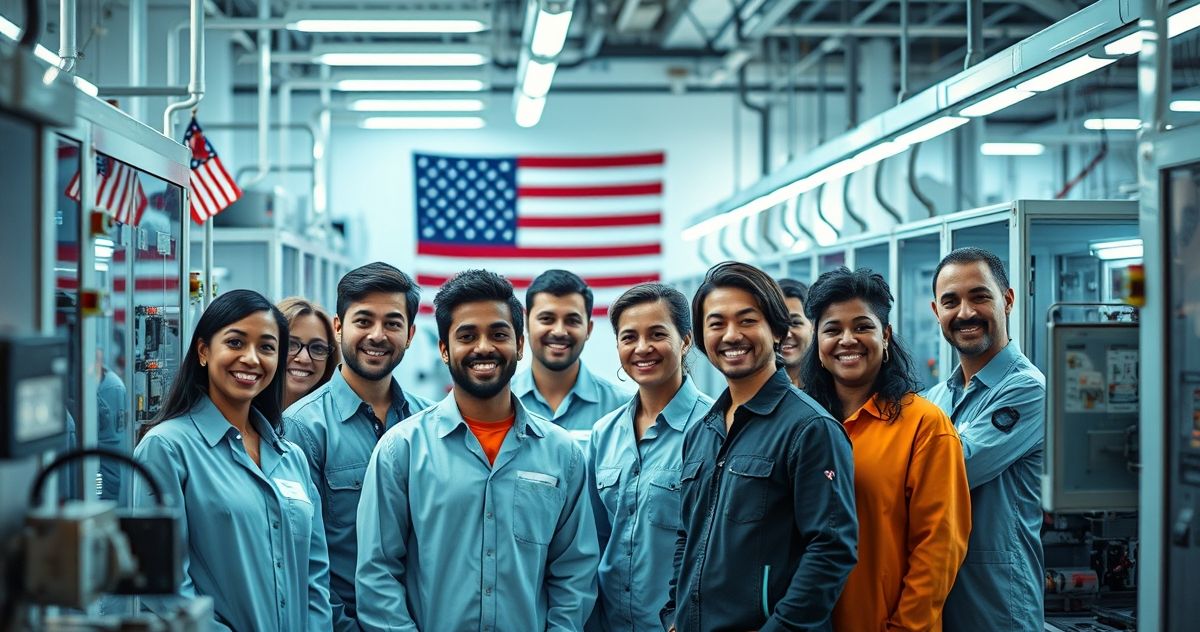Have you ever wondered who makes the tiny chips that power pretty much everything you own? From your smartphone to your car, these little pieces of silicon are everywhere. For a long time, a lot of this crucial manufacturing happened far from home. But lately, there’s been a real buzz about changing that. We’re seeing a big push from the government to strike more “deals” with private tech companies, encouraging them to build and innovate right here.
You might have heard whispers about a big deal involving a major chip maker, Intel, and how it’s ruffled some feathers. But beyond the headlines and any debates, what does this trend really mean for the tech world and, more importantly, for all of us? It’s about more than just one company; it’s about a new way of thinking about our tech future, how we get our gadgets, and who builds them.
### Why The Big Push For “Homegrown” Tech?
It’s pretty simple when you break it down. Think back to a few years ago when everything seemed to run out of stock – cars, game consoles, even some appliances. A lot of that came down to a shortage of those tiny chips we talked about. Many of them were made in just a handful of places around the world. When those supply lines got tangled, we felt it.
So, a big reason for these government-backed deals is plain old national security. No country wants to rely entirely on others for the tech that powers its defenses, its infrastructure, or its economy. Bringing manufacturing home makes us more secure. It also means more jobs right here, which is a huge win for local economies. Plus, having engineers and factories nearby can speed up innovation. When you’re not waiting for parts to ship halfway across the globe, new ideas can become real products much faster.
### What Does This Mean For Our Daily Lives?
So, if the government is investing big in private tech, how does that actually trickle down to you and me? Well, for starters, it means more opportunities. New factories and research centers need people to run them. That could mean jobs for engineers, technicians, factory workers, and even local support staff. If you’re a student thinking about a career in tech or manufacturing, this could open up a lot of doors.
It also has the potential to make our favorite tech products more reliable. Fewer supply chain headaches mean less chance of your new phone or car being delayed. And while it’s hard to say definitively, a strong domestic tech industry could even impact prices over time, though that’s a complex equation.
Here’s a quick look at some potential benefits:
* Boosts local job markets in manufacturing and research and development.
* Strengthens national security by securing critical tech supply lines.
* Could lead to faster innovation cycles within the country.
* Potentially attracts more global investment to domestic tech sectors.
* Aims to prevent future supply chain disruptions for essential goods.
### The Tricky Balance: Opportunity and Caution
Now, it’s not all sunshine and new factories. These kinds of deals, where the government gives incentives or funding to private companies, come with their own set of questions. For example, how do we decide which companies get these deals? It’s a bit like playing favorites, and that can sometimes lead to an uneven playing field. What about the smaller companies trying to compete? Do they get a fair shot?
There’s also the question of transparency. When public money is involved, people want to know how it’s being spent. Are these deals truly benefiting the public, or just big corporations? And what’s the long-term cost to taxpayers? We want to make sure these investments offer a real return, not just a temporary boost.
Consider Sarah, a bright young engineer who always dreamed of working at the cutting edge of chip design. For years, it felt like all the exciting opportunities were overseas. She even considered moving abroad after graduation. But then, thanks to one of these big government-backed deals, a huge new semiconductor plant started construction just two states away from her hometown. Suddenly, the future she envisioned, a high-tech career building the next generation of chips, felt much closer and more accessible. She’s now updating her resume, seeing a path she didn’t think was possible before.
It’s clear that fostering a strong, local tech industry is important for our economy and our security. But getting there through these kinds of government-private partnerships means walking a fine line. We need the innovation and the jobs, but we also need fairness, transparency, and a clear vision for how these deals serve everyone.
So, as more of these private industry tech “deals” take shape, what do you think is the right balance for government involvement in shaping our tech future?










